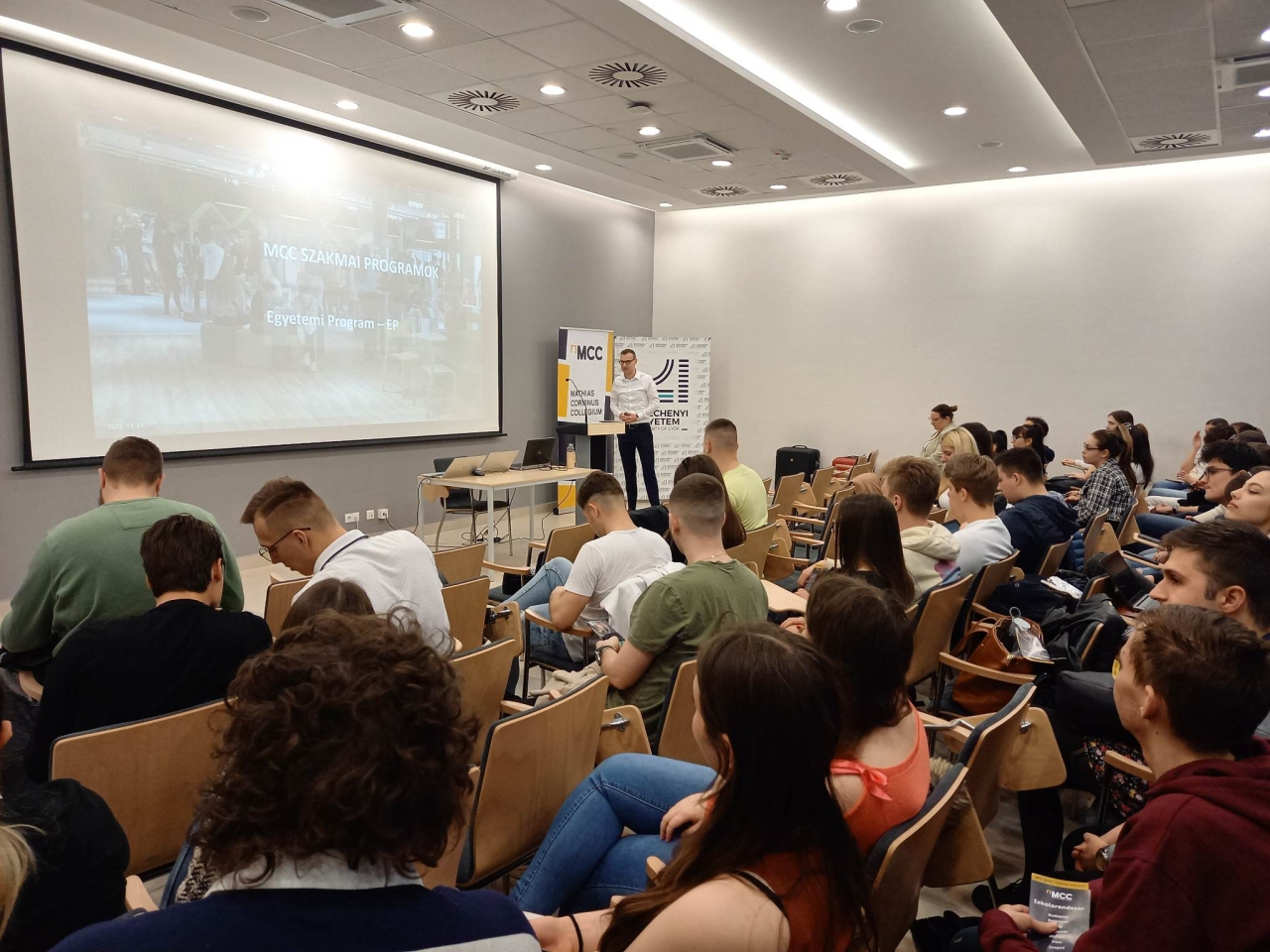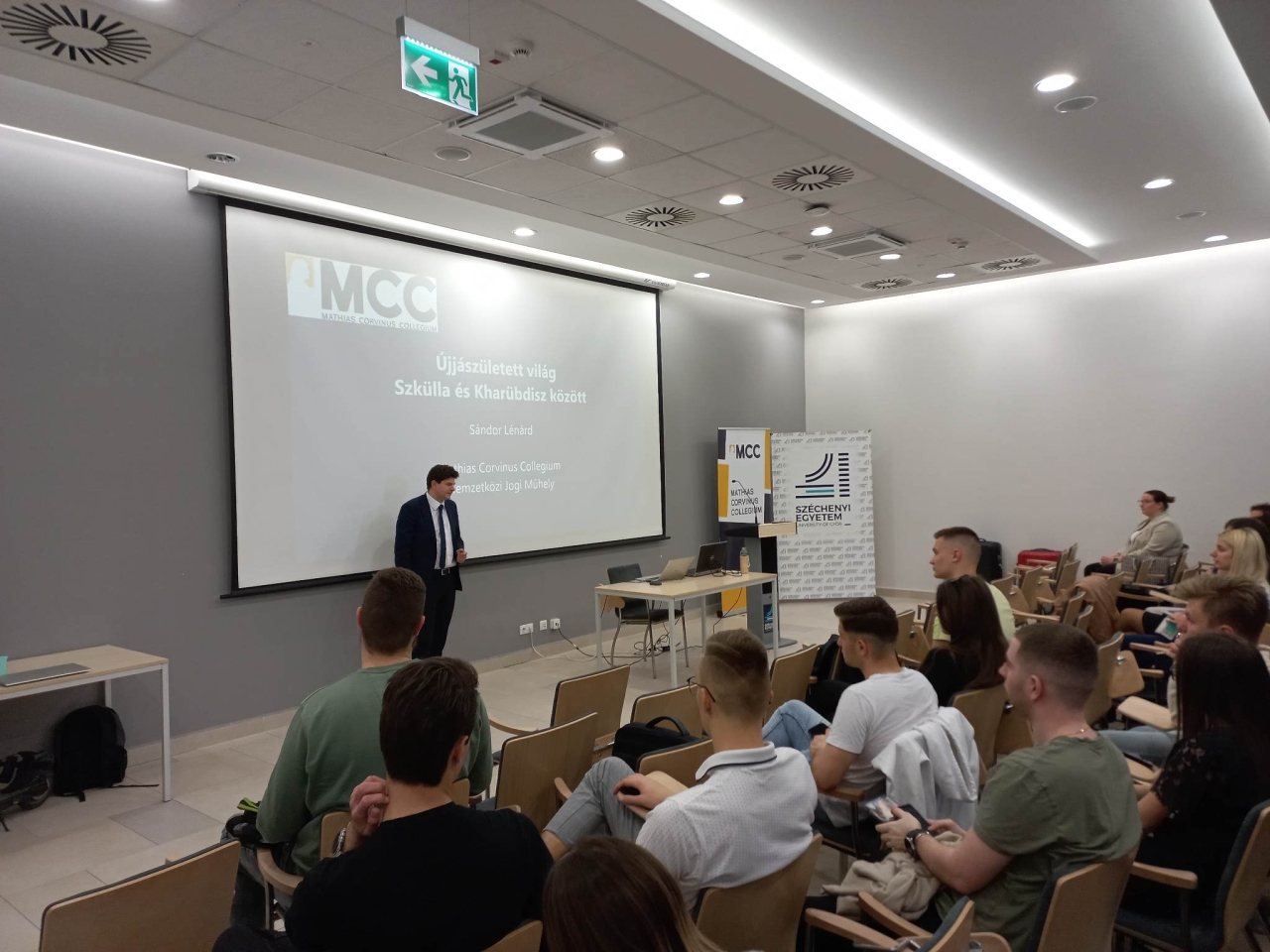Reading time: 2 minutes
The World that was rebuilt from the ashes of the Second World War has committed herself to the universality and indivisibility of human rights. Even though the culture of human rights had played a unique role in the movements that led to the change of regime and the liberation of the peoples in Central-Europe, its prestige and moral force have been increasingly captured by special-interest groups that rather advance their own particular interests than serve the human being – was pointed out by Lénárd Sándor, head of Center for International Law in university lecture at the Széchenyi István University that commemorated the 75th anniversary of the adoption of the Universal Declaration of Human Rights.
The MCC Győr Center organized a lecture at the Deák Ferenc Faculty of Law and Political Sciences of the Széchenyi István University. Mihály Dömötör gave an overview on the major goals and operation of MCC as well as the scholarship and various other opportunities it offers to students while Lénárd Sándor, head of Center for International Law presented the operation and academic programs of the MCC School of Law. In his academic lecture, Lénárd Sándor first emphasized that the legal knowledge is unique because it provides a vision and a structured way of thinking that allow to comprehend and make sense to the most complex relations, as well as to find meaningful ways forward. This unique knowledge is power but if it is without culture, tradition or soul, it could not give guidance and it can easily go astray. It is of particular importance in understanding human rights, which has become the dominant mode of discourse of contemporary thinking.
Lénárd Sándor pointed out that the UDHR is a remarkable achievement in the aftermath of the Second World War. Repelling the excesses of both individualism and collectivism, the document reflected a consensus among various civilizations and created a vision of freedom balanced by responsibilities and rooted in human dignity. Its prestige and force played a major role in the movements that led to the change of regimes in Central European countries. However, the misconception of the role of national sovereignty, the relinquishment of the principle of subsidiarity or the proliferation of new claims of rights have all posed serious challenges to its universality and indivisibility. Without sovereignty, the protection of human rights becomes illusory, while without the principle of subsidiarity it can easily become irrelevant or the imposition of the hegemonic aspiration of particular ideological preferences of those who hold the most power. By presenting a multitude of new rights’ claims, its prestige and moral force have been increasingly captured by special-interest groups for their own purposes. The UDHR has presented a vision that guarantee freedom unless brought into contempt by its “pretended friends”. The MCC international scientific conference entitled Rescuing Our Inalienable Rights will explore these and similar questions in September, and students of Széchenyi István University are welcome to attend - Lénárd Sándor concluded the presentation.


